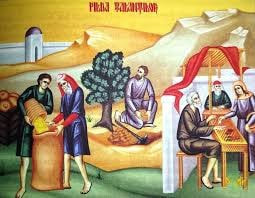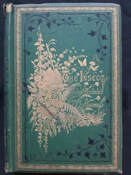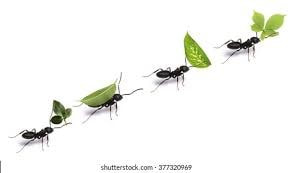 I have recently discovered an old book that I would like to commend to you. "The Insect", published in 1875, is one of four remarkable works in which the late Jules Michelet embodied the results of a loving and persevering study of Nature. These works are absolutely unique; the poetry of Science has never before illustrated on so large a scale, or with so much vividness of fancy, or in so eloquent a style. The aspects of Nature were never before examined with so strong an enthusiasm or so definite an individuality, —with so eager a desire to identify them with the feelings, hopes, and aspirations of humanity. The author approaches his subject neither as philosopher nor as poet, but yet with something of the spirit of both. His philosophy and poetry, however, both subordinate to his ardent sympathy with what he conceived to be the soul, the personality of Nature. Let me show you what I mean… "…. the ants toiling in the sand, the quarrymen working in the sandstone. Both are of the same race; the men are ants on the surface, and the ants are men below. I admired the resemblance in their destiny, in their laborious patience, in their admirable perseverance. The sandstone is a very refractory and rebellious substance, and often splitting badly, subjects the poor workmen to severe disappointments. Those especially who are forced by a protracted winter to return to the quarry before the end of the bad weather, find the hard and yet porous blocks excessively damp and half frozen. As a result, they have numerous ill-wrought stones, and a mass of waste. However, they do not lose their courage; and without murmuring recommence their painful toil." We really only need read the scriptures and listen to our Lord’s teachings to see how much we can learn from nature and the world around us. I think it was Sir Frances Bacon who wrote, “God has, in fact, written two books, not just one. Of course, we are all familiar with the first book he wrote, namely Scripture. But he has written a second book called creation.” Despite being a veritable repository of wisdom, ‘The Book of Proverbs’ is not a book we tend to quote, or refer to, very often. One of my favourite passages is Proverbs 6:6 ‘Go to the ant, you sluggard! Consider her ways and be wise.’ Throughout the scriptures our Lord commands us to ‘watch’ and to ‘work’. Indeed, in our gospel reading for this Sunday we read how our Lord praises those who multiply their given talents and condemns the slothful who bury their talents. In our Epistle reading St Pauls begins “We then, as workers …” and goes on to refer to ‘labours’ and ‘patience’, as does Michelet. Michelet refers to the ‘painful toils’; St Paul speaks of ‘tribulations’ and ‘tumults’. How sad for us that we need to be directed to emulate the example of an ant, an irrational creature. Since the leave-taking of Theophany, each of our Sunday gospel readings has been preparing us for the approach of Great Lent (15th March) and today’s gospel reading is no different. We are reminded that we have work to do! We are preparing to embark on a journey, a pilgrimage: with much work to be done as we turn (repent) and refocus on our spiritual life. We must not allow ourselves to be slothful. We can hardly find a better example of why we should not be lazy or procrastinate in prayer and spiritual work than by this example, given to us by St. Ephraim the Syrian: “Once a brother was inspired by the devil to think: ‘Give yourself rest today and tomorrow rise for vigil.’ But he answered the thought, ‘Who knows, perhaps, I will not even get up tomorrow, that is why I need to rise today.’ Before work, he was also inspired with this thought: ‘Give yourself rest today and complete your work tomorrow.’ And again, he responded, ‘No, I will complete my work today, and the Lord will take care of tomorrow.’” St. Anthony teaches: “Before the dawn of each day, arrange your life as though it is your last day on earth and you will protect yourself from sins.” St. Nikolai Velimirovich tells us that, “Slothfulness is one of the deadly sins, for it deadens the soul in man. A slothful soul is a nest of vices; a slothful soul is a habitation of the devil. O Lord Almighty, Thou Who, at the same time, art all peace and all work, deliver us from destructive slothfulness and move us by Thy Holy Spirit toward all good works, for the sake of the salvation of our souls.” Fr Julian
0 Comments
Leave a Reply. |
Parish Blog
This mainly contains homilies and messages from our priests, although there is some scope to share thoughts and interesting articles which we may want to share with others Archives
October 2022
Categories |


 RSS Feed
RSS Feed